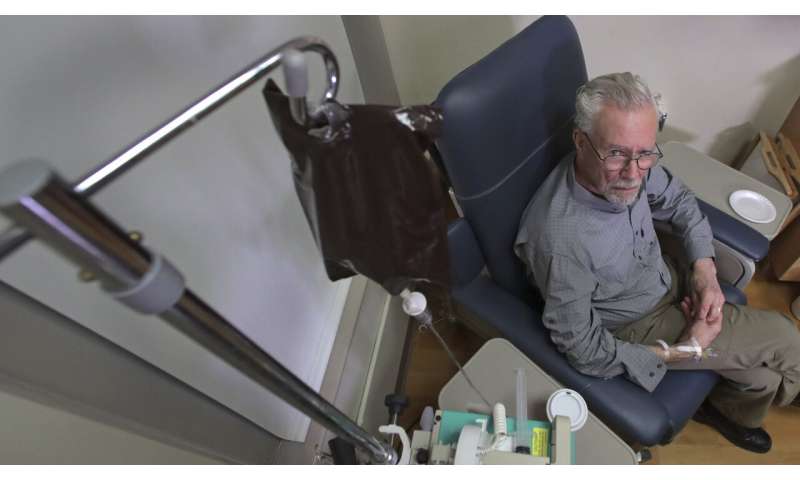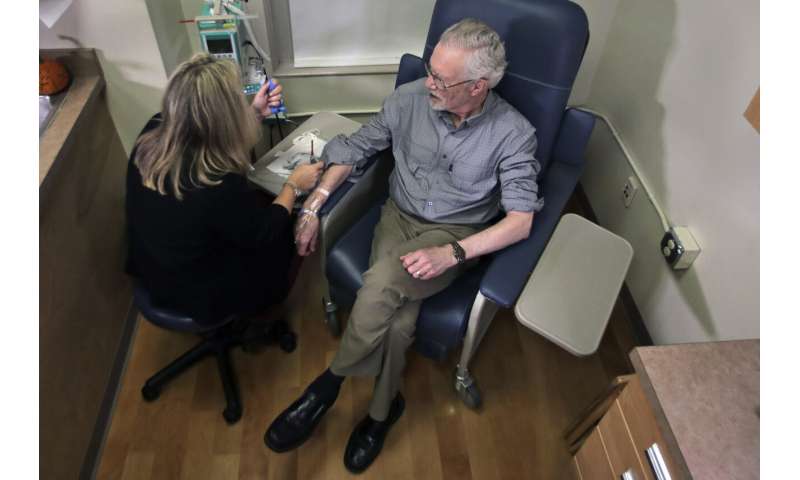

A company that claims to have the first drug to slow mental decline from Alzheimer’s disease made its case to scientists Thursday, disclosing more results that may help explain why one study of the experimental medicine succeeded and another failed.
Excitement and skepticism have surrounded aducanumab since its developers stopped studies earlier this year because it didn’t seem to be working, then did a stunning about-face in October and said new results suggest it was effective, at a high dose.
Thursday’s presentation at an Alzheimer’s conference in San Diego convinced some experts that it deserves serious consideration, but important questions remain, and it’s not clear whether the drug can or should win U.S. Food and Drug Administration approval. Changes during the study and unusual analyses make the results hard to interpret, and the true size of the risks and benefits is unclear.
“I don’t see how you can conclude anything other than that another trial needs to be done,” said the Mayo Clinic’s Dr. David Knopman. He is on an FDA panel likely to review the drug but won’t participate because he was involved in one of the studies.
Laurie Ryan, a dementia scientist at the National Institute on Aging, agreed. The FDA ultimately will decide the drug’s fate, but “we need more evidence” than what these studies provide, she said.

Some doctors who consult for the drug’s developers disagreed. Dr. Paul Aisen, a dementia specialist at the University of Southern California, said the results overall were “consistent and positive” for benefit at a high dose.
“It represents a major advance for the field,” he said.
Aducanumab aims to help the body clear harmful plaques, or protein clumps, from the brain. Cambridge, Massachusetts-based Biogen is developing it with a Japanese company, Eisai Co. Ltd.
The stakes are high for approval or denial.

Source: Read Full Article